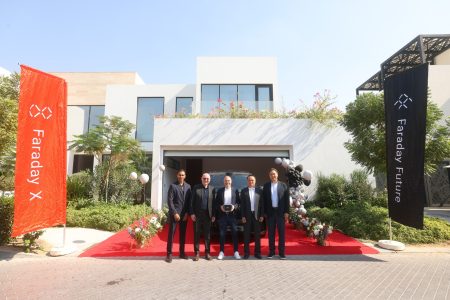Summarize this content to 2000 words in 6 paragraphs in Arabic Helle-Thorning Schmidt was elected the first female prime minister of Denmark in 2011, holding her nation’s highest office for four years, before later serving as chief executive of the charity Save the Children International. Perhaps her most prominent public role today is as co-chair of Meta’s Oversight Board, a body set up by the social media giant’s chief executive Mark Zuckerberg that started working in 2020. It comprises a global group of journalists, academics and politicians that adjudicates on the most high-profile content moderation cases on platforms such as Facebook and Instagram.Funded by a $280mn trust, the board has been cast as an independent, almost quasi-judicial body: a “supreme court” for online speech. It has dealt with some of the thorniest issues on Meta’s platforms, such as upholding — with caveats — Donald Trump’s suspension from Facebook. Last year, the board demanded Meta review policies around “manipulated media” after its moderators refused to take down an edited video on Facebook that wrongfully described US President Joe Biden as a paedophile.Meta has given the board authority over a narrow set of issues, such as whether content should be reinstated or removed. On top of issuing decisions in cases, however, it can also make recommendations for policy changes.These limits have led to accusations that Meta is merely allowing limited self-regulation that staves off more serious intervention. Thorning-Schmidt has regularly criticised Meta’s practices, while arguing the company has made substantive changes in response to the Oversight Board’s work.Ahead of an appearance at the Financial Times’s TNW conference in Amsterdam today, she spoke to the FT’s technology news editor, Murad Ahmed. They discussed the rise of AI-generated deepfakes, the sometimes drastic consequences of the board’s rulings, and how Meta’s decisions affect her personal reputation.Murad Ahmed: This is the year of elections. More than half of the world has gone to, or is going to, the polls. You’ve helped raise the alarm that this could also be the year that misinformation, particularly AI-generated deepfakes, could fracture democracy. We’re midway through the year. Have you seen that prophecy come to pass?Helle Thorning-Schmidt: If you look at different countries, I think you’ll see a very mixed bag. What we’re seeing in India, for example, is that AI [deepfakes are] very widespread. Also in Pakistan it has been very widespread. [The technology is] being used to make people say something, even though they are dead. It’s making people speak, when they are in prison. It’s also making famous people back parties that they might not be backing. . . [But] If we look at the European elections, which, obviously, is something I observed very deeply, it doesn’t look like AI is distorting the elections. I think it’s working very well. Meta is following all our decisions What we suggested to Meta is. . . they need to look at the harm and not just take something down because it is created by AI. What we’ve also suggested to them is that they modernise their whole community standards on moderated content, and label AI-generated content so that people can see what they’re dealing with. That’s what we’ve been suggesting to Meta. We’re very happy that, particularly with the Biden case, this has meant that Meta will be changing their policies.MA: You’re independent of Meta, as far as you can be. You’re in a position where you’re effectively lobbying Meta, rather than being able to force them to change in this case. Has that worked so far?HTS: I think it’s working very well. Meta is following all our decisions. As far as I know, it’s all but one decision they have followed. This is what they promised from the outset, and I think it’s very clear that they are sticking to that promise.I particularly like that they have accepted [a recommendation] they should tell people if a word in their content means [it] has to be taken down. So they’re actually informing people, “if you change this word, your piece of content will not be removed”. That gives a lot of transparency. It helps a lot of people, and that has helped millions already across the world to change their content so it is permissible on the platforms.Meta is not obliged to take all our recommendations, but I think they take them very seriously, and we are quite happy how far we have come with this tool of giving recommendations to Meta.MA: You mentioned that they accepted all your decisions but one, what was the one?HTS: It was the one in Cambodia.MA: Tell us about that.HTS: Well, in Cambodia, there was [then prime minister Hun Sen] who was putting up content that was extremely harmful and threatening, particularly to the opposition. We looked very thoroughly at this case and recommended that this particular user . . . should have a sanction of being taken off the platform for six months.Meta came back, recognised what we were saying, but [said a ban] would stifle free speech in Cambodia. That was their argument. We didn’t agree with Meta on this. We still don’t agree. We have a certain understanding for their argument, because it is true that Meta’s platforms perhaps would have been abolished in Cambodia, not helping free speech in that country.That was a clear disagreement between Meta and the Oversight Board.MA: That had some pretty real-world consequences for you at the time, right?HTS: Yes, all the board members are now considered persona non grata in Cambodia. That’s quite a big step for a government to take, particularly for me, who was also a former prime minister. . . but that also shows that they take our decisions seriously.MA: Isn’t this one of those situations that leads to criticism of Meta and the Oversight Board as well? The Oversight Board made its decision, it wasn’t able to enforce it. In Meta’s case, you could say it was a free speech decision, but you could say they took the commercial imperative. They would rather be open in Cambodia than listen to your decision.HTS: You could say whatever you want. But I also think everywhere is the market for Meta, everyone knows that. . .And I’m not defending Meta on this, but I do have a certain understanding for a point of view which is, basically, if you take down these platforms in Cambodia, for example, the opposition will have much narrower opportunities to put up their positions and their points of view. So it would stifle free speech in Cambodia if those platforms didn’t exist in Cambodia, there’s no doubt about it.That’s always a balancing act. I do think the whole case underlines the complexity in content moderation. So I don’t actually mind. We have this transparent discussion with Meta. That’s also what the board is about. We take all these discussions, these very hard choices when it comes to content moderation, and put them out in the open. Now, we can discuss this, so people can have an opinion about this.We have this transparent discussion with Meta. Everyone can participate. They can see our reasoningWe give public ownership to those discussions. Everyone can participate. They can see our reasoning. They can see it in short or long form on our website. And what we have created is a system where Meta is not the last decision-maker on the most difficult content moderation decisions, because we are. These decisions always, always come down to that cross-point between free speech and other human rights. That is what it’s always about. That’s what we discuss endlessly. I’m hoping that, with our work, everyone can see that these discussions are very difficult and take a lot of consideration, and everyone can participate, because we always allow public comments.MA: I want to come back to some of these decisions. You’re deliberately given the edge cases, you’re given the hard cases to deal with.HTS: We take the hard cases, because we take more than we are given. We take the cases ourselves, we choose them ourselves. Meta can refer cases to us as well, but most of our cases are just us deciding which cases we want to do.MA: Sure. Before I ask more about the Oversight Board and where you’d like to take it, I just wanted to go back to the conversation about AI and deepfakes. What are you seeing in this world, popping up, and what is concerning you?HTS: Absolutely everything you can imagine. Deepfakes — having a politician saying something he didn’t say, or she didn’t say, doing something they didn’t actually do. I think that was a brilliant case with the Biden case. It wasn’t even an AI-generated , it was spliced. You can [manipulate] content so that it looks like a person is doing something they didn’t do. People can get fooled by that. So that’s one big area.Another area that we are very interested in right now is AI pornography, also with public figures, but it will spill over to non-public figures, which is a deep problem. This is an enormous problem, because it can create a lot of real-life harm very, very fast. Meta has to be very, very good at taking this kind of content down and finding signals of non-consent, better than they’re doing right now. . .I think that can make an impact in how Meta treats AI-generated content that impacts particularly women but actually everyone, trans people, men as well, and also impacts female politicians, with these AI-generated nudes and even porn.I do think we will change how Meta operates in this space. I think we will end up, after a couple of years, with Meta labelling AI content and also being better at finding signals of consent that they need to remove from the platforms, and doing it much faster. This is very difficult, of course, but they need a very good system. They also need human moderators with cultural knowledge who can help them do this.What we are also looking at is whether they are equally good at doing this in their main markets, or big markets, like the US, as in other markets. So this is a very big issue for us, and I think we will be able to change Meta in this space over the coming years.MA: Two things to pick up from what you said. The first thing is, why is Meta not good at picking up signals of non-consent? Are there some issues, some structural issues, that mean that they’re poor at this and need to improve?HTS: I think for Meta it’s probably a balancing act of not over-enforcing. Particularly in the space of nudity, they don’t want to [over]enforce, so I think that’s the balancing act that Meta’s trying to make. You’ll see more about that when we finish our case.MA: You’ve got a current case about this?HTS: We’ve got two current cases going [about] public figures and nudity/pornography.MA: Then the second thing I thought was interesting is that you think that Meta will get to a stage where they will just flag all AI content on their platforms. Why don’t they just enforce this policy right away? Why take two years to get to this stage?We have suggested to them that they should label AI content, not take it down automaticallyHTS: I’m not saying it should take two years, I’m just saying that this is what we’re looking into. I don’t think anything should take two years. . . We will have more knowledge about how AI’s impacting people, women, elections, all these things that we are talking about here. After the Biden case, Meta did say they would change how they deal with AI-generated content. We have suggested to them that they should label AI content, not take it down automatically.Because, as I’m saying, not all AI-generated content is harmful. You can also do it in a way where it’s actually really clear where it’s satire, where it is funny. There is a lot of AI-generated content that can stay on the platform. [Meta] should look into labelling the AI-generated content and taking the content down if it is harmful.MA: Are you worried that Meta is spending less on moderation? The company has undergone a “year of efficiency” cutting costs, including thousands of layoffs. Some of that has even affected the Oversight Board. There had to be restructuring there with people losing their jobs at the Oversight Board as well.HTS: Tech is cutting everywhere. It’s what everyone is doing right now. I would have been surprised if that hadn’t impacted the Oversight Board as well. We are very, very sad to see colleagues leave, but we are also very clear that we will do the same amount of cases moving forward.We have gone from being a start-up and having quite hand-held procedures inside our organisation to being more streamlined. For example, in our case selection, we have better systems, better priorities for how we select cases.We have changed a lot over the last four years. We will still create the same number of cases and policy advisory opinions, and we will definitely not stop all these debates that we are starting, for example with election moderation.MA: Are you worried that they may be very well invested in English language moderation, but less so in other languages around the world, and that creates problems and holes in their moderation coverage?HTS: Yes, there are gaps. We know that. We’ve also said that to Meta, and they actually also made a substantial change. First of all, they have translated the community standards into a number of new languages. That’s one of our first recommendations and they have actually done that.The other thing is, of course, that we have asked them for their election processes, the protocol they have around elections, which they have made because of the Trump decision, where we advised them to have election protocols. It is my understanding that they are much better at looking at other countries. They were much better using their protocol in the Brazil election [and] in some African languages as well. [Meta] is better now at being able to moderate and understand the cultural context, but they’re definitely not good enough. That’s why, for example, in these two new AI cases that we’re looking at, we will be looking at whether they are as vigilant in other markets as they are in the US market, for example.It could be that they are very, very fast to take a public figure down in the US, but perhaps not as vigilant and fast in other markets. And we’re looking at that all the time.That’s why it’s so important that we are a global board. We are from the north, the south, east and west. We are from everywhere. It really creates a big difference in our conversations, that the perspective of global voices comes into our decisions.MA: What more would you like from Meta into the future? You can’t look at political advertising cases, because that’s outside the remit of the board. I think you’ve been public about your desire to be able to grab cases related to that. Is there anything else that you would like more from Meta, to be able to do your jobs better?HTS: I spend every day asking more of Meta, so, of course, today is no exception. . .We would like to understand more of how they “shadow-ban” [the practice of restricting a user’s content in ways that are not often apparent to them] and how they use AI to shadow-ban and sanction users. That’s a bit of an opaque area still, and we would like to go more into that.Then we will continue looking at AI. We have had some brilliant recommendations in that space. Meta has accepted those recommendations, but we will keep looking into that. So we are not done with moderating AI content or deepfake content. So we will keep looking into that.Other platforms could use a bit of independent oversight, so we are inviting them to engage We think Meta has improved in how they are serving users, with more transparency and advising users on how they can treat their content to stay up on the platform. But we still hear from users that they are very confused about how Meta reacts to things, so we will keep looking into how Meta can treat their users better, and we will see progress in that space, as well.As I keep saying, I think Meta has grown up in the last five years. The Oversight Board has played a part in that. But I want Meta to be the safest, best platform of all of them. And we will push Meta to become better all the time.We also invite other platforms to make use of our services. I think some other platforms really could use a bit of independent oversight, so we are inviting other platforms to engage. But for now, we are pushing Meta every day to become better, more transparent, and to treat their users better.MA: On shadow-banning. Are you saying that this is a practice where they will not give you any insight into how they come up with their decisions, or it’s outside your remit? HTS: It’s not exactly in our remit right now, but we are pushing for us to be able to find cases in that space. You asked me what are the next things we want to push Meta into, and these are some of the things that interest us. AI, shadow-banning, their sanction system in general.MA: Why do you want to get more focused on this?HTS: It is something that users don’t understand and something that. . . if you look at our cases, it’s basically been about trying to clear some things up that users didn’t understand, change the community standards when they weren’t clear. They have done that, and make it more transparent to users how things are being moderated. I think that empowers the users. We are also quite happy with the tools that users have these days. There is parental supervision. There is a lot an individual user can do to avoid certain types of content or engagement on their personal platforms or their personal accounts. We like this system. . .I think we are slowly building a system where you have regulators doing their bit. Europe’s starting but that will move to the whole world. You will have the social media platforms, particularly Meta — I know Meta best — doing their bit and improving all the time with more transparency.Then, you have the independent Oversight Board. . . keep saying to Meta, you can do better in this space, with the focus on users and transparency for users and rights for users. Then, of course, you have user pools where users get more agency in terms of what they’re seeing on their own accounts. So [all these elements] are part of the ecosystem that I think will create better moderated content online. Meta can’t tell me what to say or do, or which decisions we take. They can’t actually get rid of us, either. They’re kind of stuck with us. . .MA: Cynics who have looked at the creation of the Oversight Board have argued it’s a way for Meta to have an arm’s-length approach to the toughest moderation decisions. It’s a way of co-opting some great minds with great reputations to vindicate the way that Meta runs its platform.You are a former prime minister of your country. You’ve gone on to do other great philanthropic work. Your reputation is now attached to how Meta develops and changes over time. Have you ever thought about the impact on you, because you have standing and weight in the world?HTS: Absolutely, a great question. I think all 22 of us on the board, the one thing we are most concerned about is our independence. None of us would have accepted this role if we weren’t guaranteed our independence. Meta can’t tell me what to say or do, or which decisions we take. They can’t actually get rid of us, either. They’re kind of stuck with us. . .They have also given 22 completely independent individuals a voice to criticise them all the time. What I’m looking at is two things. Is Meta changing? Is Meta being more transparent — are they being more considerate in their content moderation?To be honest, I can’t see any other tech companies that have changed as much as Meta has over the last four, five years. I’m not saying that’s solely because of the Oversight Board, but I do think that Meta has grown up in a number of ways. That’s how I measure things. Is Meta changing, and do I think that the Oversight Board plays a part in that change? Definitely. Everyone is saying, Meta is doing this to push [difficult] decisions away from themselves. Perhaps. Well, they are actually also pushing decisions away from themselves, so it’s no longer Meta that has the final word on some of the most difficult content moderation decisions. They have, actually, given those decisions to an independent body.So I’m not sure I completely understand the scepticism. I could understand it if, four years in, there had been no changes, Meta didn’t carry out our decisions, or didn’t care about our recommendations. But the opposite is true. I’m in it because I want to show that content moderation is possible, and that we are part of a bigger ecosystem of regulation, platforms taking responsibility, independent regulation, and users themselves getting more agency.That is what I believe in. I don’t think you can get good content moderation if platforms are doing it themselves. I don’t think you can get good content moderation if governments are doing content moderation, so that’s why we have to create something in the middle.I still think it was very brave and bold of Meta to create that. They didn’t have to do that. Other companies have not done that. That’s why I’m in it, because I want to see if this can change how content is being moderated, not only on Meta’s platforms but in general.I’m seeing progress. And as long as there’s progress and independence, I don’t care so much about my reputation, because I want to see things change in real life for users and for free speech.This transcript has been edited for brevity and clarity
rewrite this title in Arabic Meta Oversight Board’s Helle Thorning-Schmidt: ‘Not all AI-generated content is harmful’
مقالات ذات صلة
مال واعمال
مواضيع رائجة
النشرة البريدية
اشترك للحصول على اخر الأخبار لحظة بلحظة الى بريدك الإلكتروني.
© 2026 جلوب تايم لاين. جميع الحقوق محفوظة.








